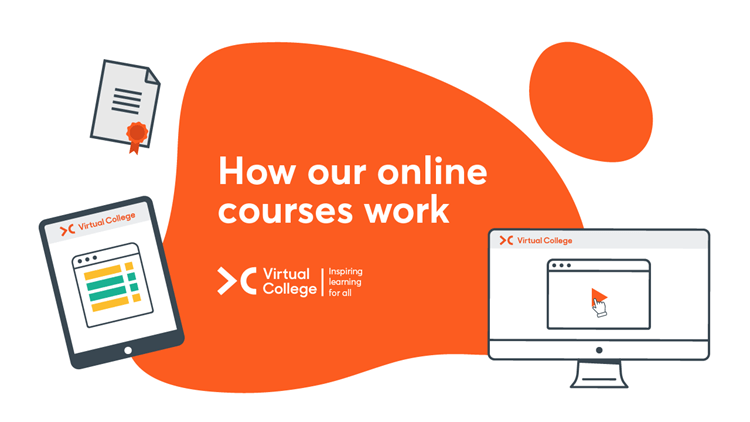Level 3 Safeguarding Adults and Mental Capacity Assessment Training Package
With this Level 3 Safeguarding Adults and Mental Capacity Assessment package explore the jargon, legislation and guidance used in safeguarding adults, how to recognise and act if abuse is suspected and know how to act with best interests of individuals and the importance of autonomy with reference to the principles and Code of Practice of the Mental Capacity Act 2005.
Package Overview
Format
- Level 3
- 4-6 Study Hours
- Online Study
- Self-Printed Certificate
Accreditation
- 8 CPD Points
- CPD Certified
Package description
This package consists of 2 popular safeguarding courses Level 3 Safeguarding Adults and Mental Capacity Assessment to ensure those working with adults remain compliant and have up-to-date knowledge of safeguarding policies, legislation and guidance as well as how to act with best interests of individuals and the importance of autonomy with reference to mental capacity.
Safeguarding Adults Level 3
This course covers the information for Level 3 Safeguarding Adults. It introduces safeguarding as a topic, covering jargon, whistleblowing, multi-agency working and best practice, as well as how to identify the signs and symptoms of abuse, what to do if someone discloses information and what you should do if you suspect a vulnerable adult is being abused.
The content also covers national and local context, as well as focusing on your role and what you can do to recognise and reduce the likelihood of abuse.
There are various topics included in this course such as:
- An overview of safeguarding
- Why is safeguarding important
- Serious case reviews and Bichard reports
- The latest legislation and guidance
- Multi-agency working
- Jargon and key terms
- Disclosure of information from adults
- National and local contexts
- Reducing the likelihood of abuse
- What to do if you suspect abuse
- Signs and symptoms of abuse
- Whistleblowing
- Types of abuse
- Roles and responsibilities
- Recognising abuse
- How to deal with suspected/disclosed abuse
- Record-keeping and recording
Mental Capacity Assessment and Deprivation of Liberty Safeguards
This course will give learners a strong foundation of mental capacity knowledge and how to apply this knowledge towards duty of care of vulnerable individuals. It also contains examples of tests, challenges to check the learner’s knowledge, and interactive case studies.
This course contains several sections and covers a huge amount of material concerning Mental Capacity Assessment and the Deprivation of Liberty Safeguards, and includes the following as well as other information:
- How to work in the best interests of individuals and the importance of autonomy
- Guidance to the relevant legislation, such as the principles and Code of Practice of the Mental Capacity Act 2005.
- How to assess capacity, who is able to do it, when it should be done, and how it is recorded
- Descriptions of fluctuating mental capacity, unwise decisions, and how to deal with a refusal to complete an assessment
- Confidentiality
- Understanding mental capacity, and the definition of an individual who lacks capacity, and the presumption of capacity
- Deprivation of Liberty Safeguards and Liberty Protection Safeguards
- Definition of a deprivation of liberty, what is restraint, when they might be necessary, and how the Safeguards apply
Accreditation
The content of this course has been independently certified as conforming to universally accepted Continuous Professional Development (CPD) guidelines.
Certification
On completion of this course, you will be able to print a Virtual College certificate.
Duration
4-6 study hours to complete. The length of time taken depends entirely on how quickly learners can study and absorb the material.
Target Audience
This training is designed for anyone who frequently works with vulnerable adults and needs a more in-depth knowledge of safeguarding legislation and procedure.
Entry Requirements
There are no specific entry requirements for this course.
You will learn
- Explain the profound impact some well-known cases of abuse have had on legislation
- Explain the importance of multi-agency cooperation
- Define safeguarding in respect to vulnerable adults
- Describe what you need to do if a vulnerable adult makes a disclosure or if you suspect abuse
- Explain what whistleblowing is, what it is not and why it is important
- List the ways you can reduce the risk of abuse
- List the signs and symptoms of the different types of abuse
- Outline the responsibilities lead workers have in safeguarding situations
- Outline why assessing mental capacity is important and understand the legal framework behind this assessment
- Outline who can assess mental capacity, and how to do the assessment, and how to record it
- Explain what is meant by an unwise decision
- Explain what lacking capacity means
- Describe the duties of an Independent Mental Capacity Advocate (IMCA)
Who is it for?
Roles including:
- Doctors
- Social Workers
- Care workers
- Nurses
- Councillors
- Support workers
Legislation
Mental Capacity Act 2005, Human Rights 1998, Universal Declaration of Human Rights 1998 and Equality Act 2010


























